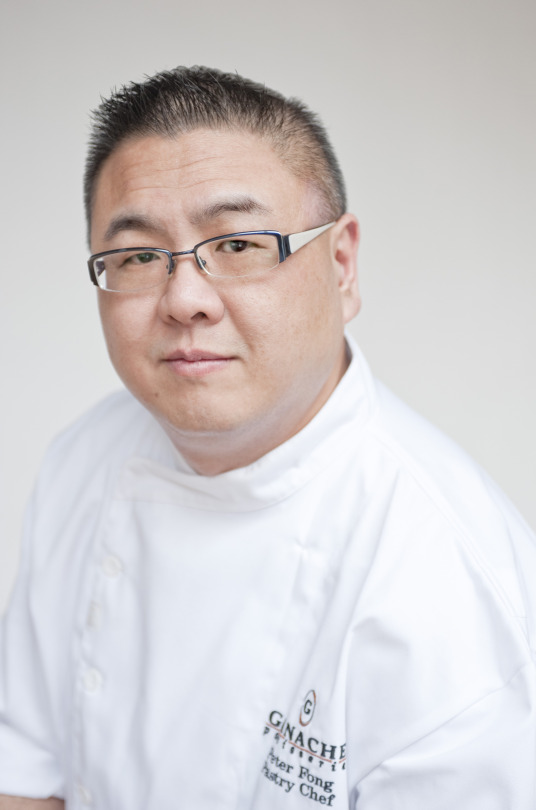#Andragogy
Text
A little about me...
My name is Peter Fong and most of you will not have heard of me before, but sometime over the past 20 years, you may have tried some of my desserts, cakes or croissants. Prior to enrolling into the PIDP program at VCC, I was the proud owner and pastry chef of Ganache Patisserie in Yaletown. Opening the shop was my vision to “bring a little bit of Paris to Vancouver” and becoming established as one of Vancouver’s premier pastry and wedding cake shops was a dream come true. However, with my lease expiring at the end of October 2023 and the total upheaval in our business due to the Covid-19 pandemic, I decided to close the business and pursue a career in teaching.




As part of the curriculum of PIDP 3100, this blog will chronicle my journey through the program as we explore andragogy and what it means to be an adult learner. On a more personal level, I will look at my experience in returning to academic studies, differentiating my time as a student at UBC over 30 years ago from my time at culinary school and then my career working as a pastry chef and business owner. And having recently been hired by the Vancouver School Board as a Baker supporting the instructors in secondary school culinary programs, I hope to gain more insight from the beginning of my new career in teaching and education.
2 notes
·
View notes
Text
Andragogy là gì – Thế nào là đào tạo người trưởng thành?
Andragogy là phương pháp tạo ra trải nghiệm học tập phù hợp, được thiết kế dành riêng cho những học viên trưởng thành.
4 nguyên tắc học tập của người trưởng thành trong phương pháp Andragogy bao gồm:
Học tập tự chủ
Học tập từ trải nghiệm
Học tập liên quan
Tiếp cận theo hướng giải quyết vấn đề
Vậy phương pháp này có gì đặc biệt và có sự khác biệt nào với phương pháp Pedagogy?
Cùng OES tìm hiểu trong bài viết dưới đây nhé! https://oes.vn/andragogy-la-gi-the-nao-la-dao-tao-nguoi-truong-thanh/

2 notes
·
View notes
Text
Welcome to The A.R.T. Lab!
A.R.T stands for Arts-based Research and Teaching. Here, there is nothing to prove and everything to share. My greatest hope for this virtual space is to create a community hub for artists, arts and non-arts teachers, arts and non-arts learners, and anyone curious about arts education and appreciation, both visual and performing.
Disclaimer: The A.R.T. Lab is a place where the content shared is inherently heterogeneous. Visitors will find teaching tips, education research, arts media, fun facts, original posts, Q&A's, and so much more. This is a place that, like it's namesake (art), will only be limited by its blogger's imagination. Sometimes, you will find very academic material, other times you will find cozy pictures of bookstores. Anything arts and academia related is welcome!
#education#arts education#studyblr#theatre#art#dance#music#pedagogy#andragogy#higher education#k 12 education#visual arts#research#teacher#student#teaching#learning
3 notes
·
View notes
Text
Adult education: the Chinese are already investing on it
One of these days, I was watching Bloomberg TV and a Chinese speaker was invited to talk about how much of the young generation of China is inevitably going to age, and so they’ll have about 300 million people that today are under 18 pursuing new interests. As globalization pivots on, companies try to seize opportunity now rather than wait to launch a project without proper research (hello,…
0 notes
Text
Andragogy
Andragogy [AN-drə-gah-jee] Part of speech: noun Origin: Greek, 1920s 1. The method and practice of teaching adult learners. 2. Adult education. Examples of andragogy in a sentence “I prefer andragogy; I work better with adults than with kids.” “Since she was teaching adult learners this year, she had to quickly adapt to the techniques of andragogy.” #wordoftheday
youtube
View On WordPress
#Andragogy#daily#definition#dictionary#educational#Knowledge#learning#lesson#schoolhouse#vocabulary#word#Youtube
0 notes
Text
Andragogy in Action: Best Practices for Teaching Adults

The study of adult education is known as andragogy. It is predicated on the idea that people are independent learners who are driven to master skills that will help them in their personal and professional life. Additionally, andragogy stresses the value of experience in adult education.
The father of andragogy is regarded as Malcolm Knowles. He created an adult learning theory based on the following six presumptions:
Adults are self-directed learners who are inspired to study when they perceive the material's applicability to their daily lives and jobs.
Adults contribute a wealth of experience to the learning process that may be utilized as a learning resource.
When adults actively participate in the learning process, they learn more effectively. Activities like debate, problem-solving, and hands-on learning are included in this.
A collaborative and supportive setting is the ideal place for adults to learn.When adolescents feel protected and valued, they are more willing to share their thoughts and ask questions.
Adults are driven to study when they can immediately relate the information to their lives and jobs. They want to know how the information they are learning may be used in their present position.
Adults prefer problem-centered learning because they are more motivated to do so when they are presented with a challenge.
The foundation of andragogy is the idea that adults learn differently from children. When the subject is relevant to their lives and jobs, adults are more motivated to study it. They also offer a wealth of expertise to the classroom that may be tapped upon during the learning process. The value of collaborative learning and active learning in adult education is also emphasized by andragogy.
Andragogy is employed in a number of contexts, such as community education, university education, and corporate training. In informal learning environments like online learning and self-directed learning, it is also employed.
Here are some recommendations for using andragogy in your instruction:
Assess the needs and interests of your students first. What do they want to learn? How does the information apply to their daily activities and jobs?
Use a variety of teaching strategies, including active learning activities like problem-solving, discussion, and hands-on learning. * Create a supportive and collaborative learning environment. Encourage students to ask questions and share ideas. * **Provide students with opportunities to apply what they are learning to their real-world lives.Give students continuous encouragement and feedback.
You may design more efficient and interesting learning opportunities for adults by putting the andragogy principles to use.
1 note
·
View note
Video
ANDRAGOGY Trailer | TIFF 2023 | Sha Ine Febriyanti , Angga Yunanda , Pri...
0 notes
Text
A Provider Perspective of Adoption of Healthcare Simulation as a Teaching Andragogy
0 notes
Text
Integrating Constructivist Teaching Strategies for First-Year Criminal Justice Students
Constructivist learning theory is a learning concept that students build knowledge based upon their prior knowledge and learning from the world around them (Hrynchak & Batty, 2012; Yoders, 2014).
Lev Vygotsky, John Dewey, and Jean Piaget are the main theorists in the development of constructivist learning (Hrynchak & Batty, 2012; Yoders, 2014). Constructivist learning is a good match for…

View On WordPress
#Andragogy#Collaborative Learning Theory#Constructivist learning theory#Criminal Justice Education#educational research#first year college students#Learning Theory#teaching strategies
0 notes
Text
Earn or Learn : The Government's Misunderstood Purpose of Education
Earn or Learn : The Government's Misunderstood Purpose of Education http://wp.me/p1D1R7-hZ
There has been much upset and anger at the Government instigated changes to education:
University fee increases.
University debt interest increase.
University HECS proportion increase.
Commercialisation of universities.
The proponents chant earn or learn, competition will work its magic, fees will be less and new university places will be created.
The opponents are derided as leaners, bludgers,…
View On WordPress
#adult education#andragogy#Budget#Christopher Pyne#Education#HECS#pedagogy#Politics#Prime minister#Tony Abbott#university fees
0 notes
Text

Libido and the Conditions of Being an Adult
Introduction to Andragogy
… Adult life within Sociology is called Andragogy!
Libido is the Liberation of Desires!
... and the Turing Machine by David Karp - CEO-1 of Tumblr and WordPress (the Neo Internet) - Revival of .net traditions before META



2 notes
·
View notes
Text
Blog Post on Chapter Three: Andragogy – An Interesting Article I Found

In the course of my research, I came across this interesting article by Nisreen Abdulsalam (2015) which explores culinary arts education and the use of andragogical learning theories in her study.
https://tigerprints.clemson.edu/cgi/viewcontent.cgi?referer=&httpsredir=1&article=2502&context=all_dissertations

The main motivation for Abdulsalam’s study is to promote the benefits of sodium-reduced cooking and menus to future chefs. Therefore, she designed her study to look at the effectiveness of different teaching methods including experiential learning techniques and online learning by surveying students who attended classes in person and online. Abdulsalam explains…”part of this research was looking to integrate best practices in teaching and learning as relevant to advancing culinary students education and to determine which teaching strategies and learning theories can be used with culinary students for applied nutrition training programs.” She then talks about specific learning theories. “To maximize learning outcomes for adult culinary arts students, experiential learning should rely on sound andragogical principles. The use of an andragogical theoretical approach in the form of the experiential learning strategy in teaching and learning can be seen in a study…[of] the efficacy of an online-based learning for culinary students and [it was] found that the key to engaging adult students was to teach them what they wanted to learn, rather than following some kind of a predetermined plan.” Other strategies she mentions includes self-directed learning, group learning and motor learning,
By adapting the above-mentioned theories to online learning, she describes a theory that I had not heard of before but seems like something that will be of use in my future classes. Abdulsalam writes, “The theoretical framework guiding this application is cognitive theory of multimedia learning. This theory applies a foundation of experiential learning theories to online learning (Mayer, 2005). The assumptions of a cognitive theory of multimedia (CTM) include the following: (1) assumption of dual channels, (2) assumption of limited capacity, and (3) assumption of active processing. The assumption of dual channels assumes that when both auditory and visual processes are stimulated, learning is improved. Hence, it is better to present an explanation using two modes of representation rather than one, such as words and pictures. The assumption of limited capacity asserts that there is a limit to the amount of information that can be processed at one time by the working memory (short-term memory). The assumption of active processing assumes that if opportunities for interacting with learning materials are made available, students learn best and can apply what was presented in new situations (Mayer, 2005).”

To summarize Abdulsalam’s view on learning theories in culinary education, she states “a few strategies such as demonstration, hands-on training, as well as lecture capture support experiential learning strategies and encourage andragogical learning theory. Specific strategies should include self-directed learning, group interaction, motor skill learning, and multi-channeling. All these strategies should be implemented in a manner that would present a moderate level of challenge to students while avoiding information overload.” I agree with her viewpoint on the use of these strategies and the theory I would like to delve further into is the Cognitive Theory of Multimedia as it looks to be applicable to my future classroom.
0 notes
Text
Gratitude to the Faculty of Education at SGT University: A Journey from Special Educator to Assistant Professor
Introduction
My name is Tarun Pataanjali and I am a proud alumnus of the Faculty of Education of the SGT University, considered the best education university in Haryana. I started my education by enrolling in the B.Ed. Special Education (Intellectual Disability) program during the 2020-2022 session. Inspired by the exceptional learning experience at the best university for B.Ed. in Special Education, I then proceeded to get my M.Ed. Special Education (Intellectual Disability) from the same university.
Why Faculty of Education at SGT University Stands Out
The Faculty of Education at SGT University stands out as the best university for education because all the programs are professional-oriented, skill-based, and competency-based, where theory and practical and field-wise activities are conducted. The strong faculty helped to construct transformative, holistic, and value-based immersive learning to pave the way for a productive career in special education.
Innovative Pedagogy
Among the main advantages of the Faculty of Education at SGT University is the rather efficient approach to teaching and training, that focuses on creativity. The faculty of the university adheres to the principles of andragogy and heutagogy, developing a research approach with students. The practical classes are conducted as creativity-promoting experiences, and the application of ICT tools within instructions guarantees that the students have a comprehensive overview of the offered instructional technologies.
Expert Faculty and Mentorship
I would like to express my appreciation to the faculty members, particularly Dean Prof. Madhvi Sharma, H.O.D. Mr. Ravinder Saini and the rest of the team in the Intellectual Disability department. They have provided me with professional guidance as well as support, which has helped me launch a very successful career in specialties in education.
Also Read: Education: The Bridge to a better future, Educate yourself , Empower your world
UDAAN: Empowering Extraordinary Lives
Undoubtedly, one of the most profound and promising commencements of the Faculty of Education at SGT University is UDAAN, a center that offers education and therapy to children with low abilities arising out of any type of disability—be it physical, intellectual, or multiple disability—belonging to any community. UDAAN provides services based on the child’s requirements, on a group or one-to-one basis, depending on the child’s functioning level.
The center’s vision is to regard and nurture each learner’s capacity and talents, supporting and facilitating their learning process and their experiences in life. The mission of UDAAN is to ensure that every child attains his or her full potential and gets equipped with all the life skills to enable him or her to become a productive citizen.
Some of the services offered by UDAAN are assessment and identification of all types of disabling conditions, special school, counseling sessions, occupational therapy, speech therapy, physiotherapy, play therapy, prevocational training, remedial classes and hearing assessments.
It also engages in innovative research on special education practices, which includes interventions and technologies, making the center a one-stop center for its students and aspiring educators in the field of special education.
From Student to Special Educator
When I finished my B.Ed. Special Education (Intellectual Disability) from SGT University, I obtained a place as a special educator at the best-known educational institution, Khushboo Welfare Society in Gurugram. This coursework opportunity was also a valuable experience to enable me to be exposed to an environment where the knowledge and skills learned were used directly and made a difference in society, particularly for people with special needs.
Ascending to Academia
At present, I teach as an assistant professor at the Ashtavakra Institute of Rehabilitation Sciences and Research in Rohini, Delhi. I consider this success proof that the Faculty of Education at SGT University has provided me with very solid groundwork, along with a wide and thorough educational program. The emphasis that the faculty places on interaction with enterprises, research, and social initiatives helped me develop all the proper skills and mentalities needed to succeed within the sphere of academics and in the field of special education as well.
Career Opportunities and Support
Career opportunities available for graduates of the Faculty of Education at SGT University include school teachers, special educators, counselors, social workers, e-tutors, entrepreneurs, teacher educators, principals, academic auditors, and research professionals. The faculty liaises closely with industry and reputed organizations such as Jhpiego, Laerdal Medical India and the Indian Nursing Council; thus, students get exposure to the latest research and can do their internships with such affiliations, making this the best university for education in Haryana.
Dedicated Special Education Career Support
Furthermore, for students aspiring to build a career in special education, the Faculty of Education at SGT University provides premium career coaching. Professionals in this faculty also include a placement cell that conducts career counseling sessions, workshops, job fair and finding internships and placements in good organizations that offer placements to special education graduates. The faculty’s alumni also have a responsibility to support and provide direction to the current students; this is through sharing their experiences so as to ensure that the students do succeed in their chosen careers.
SGT University: A Research and Innovation Powerhouse
In the same way, SGT University, in its general sense, is a research and innovation hub, oriented to give an opportunity for higher education to different groups of the population. Integrated into these complex facilities is a multi-specialty SGT Hospital full-fledged, NABL and NABH accredited to meet the healing needs of the communities and offer real-life exposure to the medical students. SGT University has also formed relations with the leaders of other universities to form the Center of Excellence to promote and support research as well as development in its faculties.
Conclusion
After considering all these opportunities and privileges I have received throughout the journey, I really can not thank enough the Faculty of Education at SGT University. I must commend the faculty’s passion for preparing students to be competent special educators and/or specialists in inclusive education. I am sure that SGT University and the Faculty of Education will always help me and many other graduates in our further careers, as they have been doing for everyone else.
If you are determined to unlock a positive change for the disabled and if education is the tool given to you, then join the Faculty of Education at SGT University, the best university for B.Ed. in special education. Take this chance to study at the faculty with such qualified teachers as Prof. Madhvi Sharma, carry out research, and join the friendly community working for the development of society’s tolerance. Based on the faculty’s endorsements and advice, one can establish lucrative employment in special education and assist individuals who require support in their lives.
Source:-https://sgtuniversity.ac.in/education/blogs/a-journey-from-special-educator-to-assistant-professor
0 notes
Text
Kita harus menyadari kalau indonesia sangat rendah dalam dunia pendidikan, dari dulu sampai sekarang isu penting kita dalam menunjang pendidikan ini masih sama yaitu literasi dan numerasi yang masih sangat rendah.
Selain menanam benih baru untuk bibit-bibit indonesia yang akan datang atau mengejar ketertinggalan, perlu juga adanya suatu upaya yang membuat pengajar bibit-bibit indonesia yang akan datang itu mumpuni dalam ilmu pengetahuan. Artinya pendidikan pedagogik sangat penting dan tentunya berbeda dengan pendidikan andragogi.
Ada beberapa hal penting yang menjadi pembeda antara pendidikan pedagogik (anak kecil) dengan pendidikan andragogi (orang dewasa) diantaranya:
Kalau mengajari orang dewasa itu konsep terhadap diri mereka sudah ada. mereka sudah punya pandangan tersendiri tentang dunia, mereka sudah punya nilai-nilai, truth yang mereka percayai hasil akumulasi dari pengajaran sebelumnya. jadi ketika kita ingin memberikan edukasi terhadap orang dewasa tidak bisa kita berikan dengan cara memberi tau, jika anak kecil dari tidak tau menjadi tau, kalau orang dewasa kita berusaha mendorong lewat alternatif point of view lain. Misalnya memberikan pertanyaan yang bisa menimbulkan pemikiran-pemikiran baru untuk mencipkan berkembangnya ilmu pengetahuan
Cara berfikirnya sendiri. Jadi kalau kita bicara tentang critical thinking atau lateral thinking, crative thinking, pragmatic thinking, pragmatic problem solving, kalau orang dewasa sebut saja di umur 35-40 sudah punya cara saklar untuk menyelesaikan masalah. Misalnya mungkin orang-orang yang bekerja di kementrian atau pendidikan itu sendiri, sudah lebih otomatis, kalau ada masalah A saya harus selesaikan dengan cara B, ada masalah A saya akan buat suatu event dengan pendekatan ini, sudah ada pakem-pakem yang biasa mereka lakukan. Jadi yang terpenting berusaha melakukan untuk membuat cara baru lagi dalam menyelesaikan masalah dan membuat kebijakan publik baru, itu tantangannya berbeda, jadi kita harus buat ruang belajarnya seaman dan senyaman mungkin untuk mereka merasa oh saya boleh lo berubah pikiran, atau saya boleh menitipkan atau melepas ransel saya dulu tentang apa yang saya percaya tentang dunia di luar ruang kelas, masuk kelas itu saya mau ekperimentasi dengan ide-ide baru. itu tantangannya luar biasa sulit.
Apa yang mereka persepsikan sebagai otoritas pengetahuan. misalnya dalam sebuah ruangan itu semua orang sudah punya pengetahuan darimanapun, jadi siapa yang punya otoritas terhadap pengetahuan itu menjadi kompetisinya tersendiri. Misalnya bagaimana influencer yang baru googling sedikit itu bisa jadi lebih banyak yang mendengar dibanding orang- orang yang mumpuni, orang-orang yang punya gelar prof atau phd lainnya. Jadi bagaimana kita exerting authority sebagai sumber pengetahuan atau alternatif pengetahuan kepada orang-orang dewasa yang ada pengetahuannya yang perlu di luruskan mislanya. Untuk mengejar ketertinggalan tadi, ada elemen untuk dibukanya alternatif informalnya, dan juga bekerja keras karna kompetisi kita adalah berbagai konten-konten atau sumber pengetahuan lain yang kadang-kadang justru memanfaatkan ketidak berfikir kritisan masyarakat pada saat ini.
0 notes
Text
Digital andragogy: the need to know and the role of experience in an online Master’s degree
Blog de la "RIED. Revista Iberoamericana de Educación a Distancia". La Revista Iberoamericana de la Educación Digital.
0 notes
Text
Recommendations for Creating Inclusive Classroom Andragogy: Perspectives of Graduate Students with Learning Disabilities
Guided by principles of Disability Critical Race Theory (2013) and Universal Instructional Design (2006), the purpose of this study is to examine the structural inequalities in higher education that marginalize students with disabilities, identify the unique needs of graduate students with learning disabilities, and identify the ideal classroom characteristics that would reduce or eliminate the need for self-disclosure and accommodations. This phenomenological qualitative research study focuses on the voices of fourteen graduate students with self-identified learning disabilities to highlight the unique needs of graduate students and the areas for improvement. Participants shared their reason for self-disclosing and seeking accommodations, or not. They shared the differences between their undergraduate and graduate experiences. Participants also conceptualized an ideal classroom, based on previous experience, and shared those characteristics. Themes included the need for: flexibility, diverse ways of presenting information and assessing knowledge, structured courses with clear instructions and reminders, and an open and honest dialogue pertaining to disability. These characteristics directly aligned with Universal Instructional Design principles. The study also includes information about the benefits of disability and the experience of going through education during a global pandemic. To conclude, students provide direct recommendations for praxis to faculty who have students with disabilities in their classrooms.
Keywords: learning disability, graduate students, andragogy, Universal Instructional Design, DisCrit, social model
0 notes